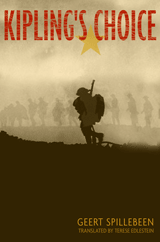"As he suffers great pain and loneliness in the time before his death, John does not reflect philosophically upon his life or his loss of it. Mostly he cries for his parents and his home, and wonders what has happened, what will happen, to him. It is one of the more realistic and emotional portrayals of a death that I have read and shows far better than any movie just what dying in a war is all about. It is worth noting that in the Battle of Loos the British army sent their men out to be little more than cannon fodder. They marched them into German guns, hoping they would overwhelm their defenses; they were wrong. The same thing happened in Gettysburg and Fredericksburg in the U.S. Civil War; the same thing happened in Gallipoli also in 1915.
 There are a hundred similar battles I could list here, give me time and it could be a thousand. And all of the soldiers are dead just like John Kipling, and all of them died just like he did. And it is never pretty, and it is never glorious. Death never is any of those things and if you think it will be different in battle then you are a dreamer; we are all dreamers."
There are a hundred similar battles I could list here, give me time and it could be a thousand. And all of the soldiers are dead just like John Kipling, and all of them died just like he did. And it is never pretty, and it is never glorious. Death never is any of those things and if you think it will be different in battle then you are a dreamer; we are all dreamers."
 (And some days it takes more Stones than others...) Where Mythical Bestiary meets Contemporary Culture and Chews On Its Leg Until Covered with Slobber.
(And some days it takes more Stones than others...) Where Mythical Bestiary meets Contemporary Culture and Chews On Its Leg Until Covered with Slobber.
No comments:
Post a Comment